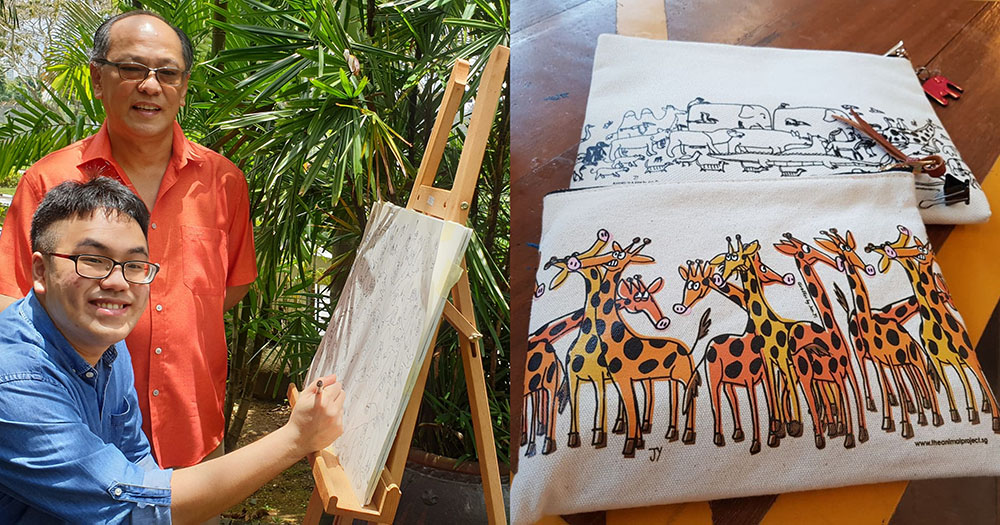“The main thing we want to project is that whatever we produce must be a dignified product, must be a good-quality product, as good as any out there. It cannot be a pity-me product.”
This is the key takeaway that 66-year-old Roland Tay, social entrepreneur and former senior vice-president of a telecom company, wants me to know regarding The Animal Project (TAP), a social enterprise that helps artists with special needs make a living by selling products, such as mugs, clothes, bags and mats with their artwork on it.
“You know what’s a pity-me product? People buy because you are a ‘charity’, because it's a ‘special-needs product’. It may not necessarily be good. People will still support, but only once or twice and that’s it. But if it’s a dignified product of quality, people will continue to buy especially when there is a social cause behind it. Like this one, which has been on sale since 2013,” Tay says, pointing to a milk mug embellished with the cow artwork.
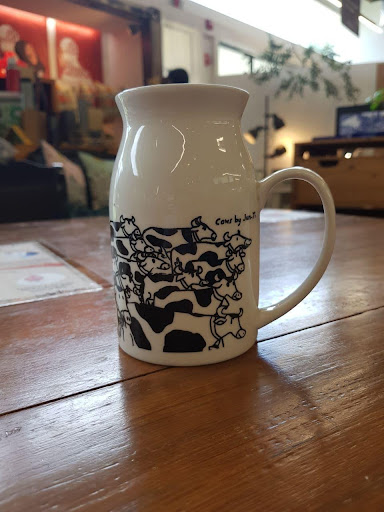 Photo by Matthias Ang
Photo by Matthias Ang
The mug is consistently one of The Animal Project’s top-sellers, according to Tay, along with another V-shaped mug that is embellished with the giraffe artwork.
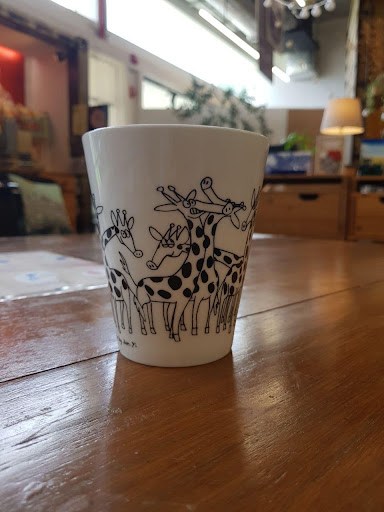 Photo by Matthias Ang
Photo by Matthias Ang
Both of them were drawn by Jun-Yi, Tay’s son, who is largely the reason why The Animal Project was started in 2013.
Starting The Animal Project in 2013 because of his son’s artistic ability
“My son is autistic,” says Tay.
“He also loves to draw and he has been drawing since he was very young. He has this very natural talent, but he only draws animals.”
Tay highlights that this is a feature of autism.
“When persons with autism are fixated on something that is of interest to them, they just focus on what they like.”
Tay adds that he found Jun-Yi’s drawings “attractive” and “artistic”, and decided to help his son by channeling his artistic ability into making a living.
As such, he decided to work with Jun-Yi’s artwork for the beginnings of The Animal Project in 2013. With a few like-minded volunteers they conceptualised a business model of paying an artist royalties from the sale of products featuring their artwork.
The project soon caught the attention of the Singapore Zoo, which approached Tay and invited his project to be one of its consignment partners at the end of 2013.
Tay notes that this was the point in which the project took off, becoming a registered company with its current name, in order to be one of the zoo’s consignment partners.
“We are one of the major partners with the zoo now. It has lasted for nearly eight years.”
So what is the present state of The Animal Project?
At the moment, The Animal Project has five artists in its “collective”, according to Tay, with the other four artists recruited once The Animal Project took off. The Animal Project has also employed four other young adults with autism who had difficulty finding employment.
All of the artists, including his son, are from Pathlight School’s Artist Development Programme, whom The Animal Project also works with.
Pathlight School is Singapore’s first autism-focused school offering both life skills development as well as mainstream education, with their students also undergoing the national examinations (PSLE, GCE ‘N’ and ‘O’ Levels).
This does not mean that they are full-time artists, however, but that they are simply artists who provide him with art, Tay clarifies.
Tay states that the artists can draw in their free time. Once in a while, he adds, he will pass them a brief such as a request for a specific animal like a pangolin and he will let them draw at their own discretion.
“When they are ready, they will tell me and send me the picture and I will take it.”
How is the artwork transferred onto the various items such as mugs and bags?
This depends on the product, Tay elaborates, with different methods required for different items.
A silkscreen is used for non-metallic mugs, placemats, coasters and cloth products, while heat transfer is used for cloth products such as pouches, bags and tees, with laser printing used for metallic products.
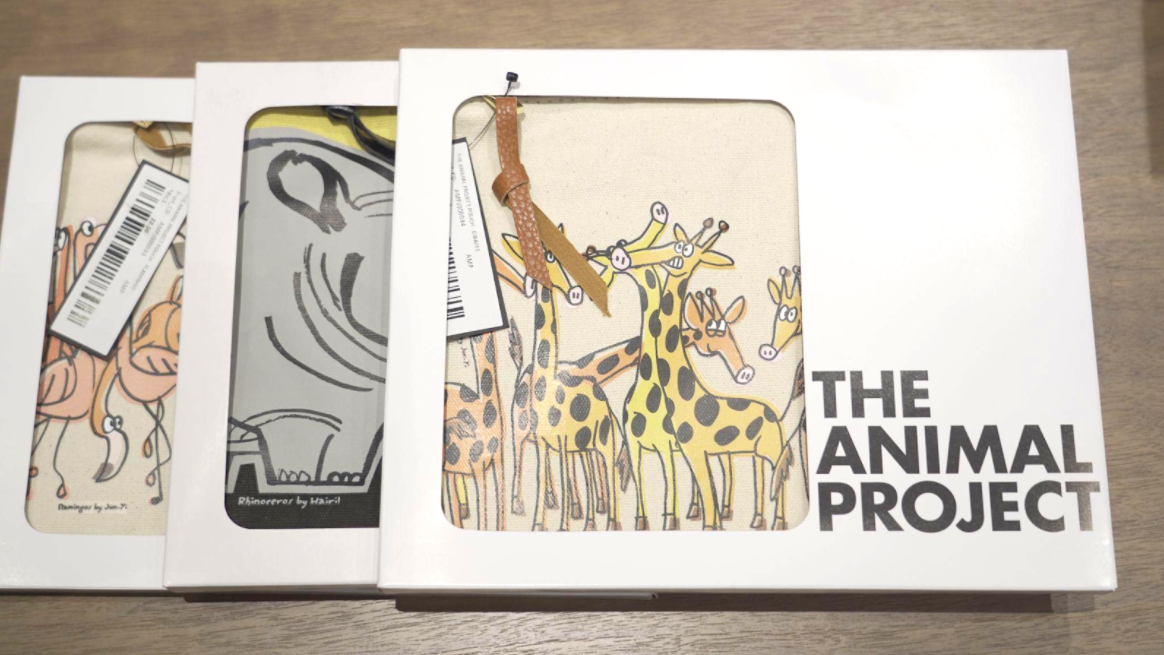 Photo by Abriel Tay
Photo by Abriel Tay
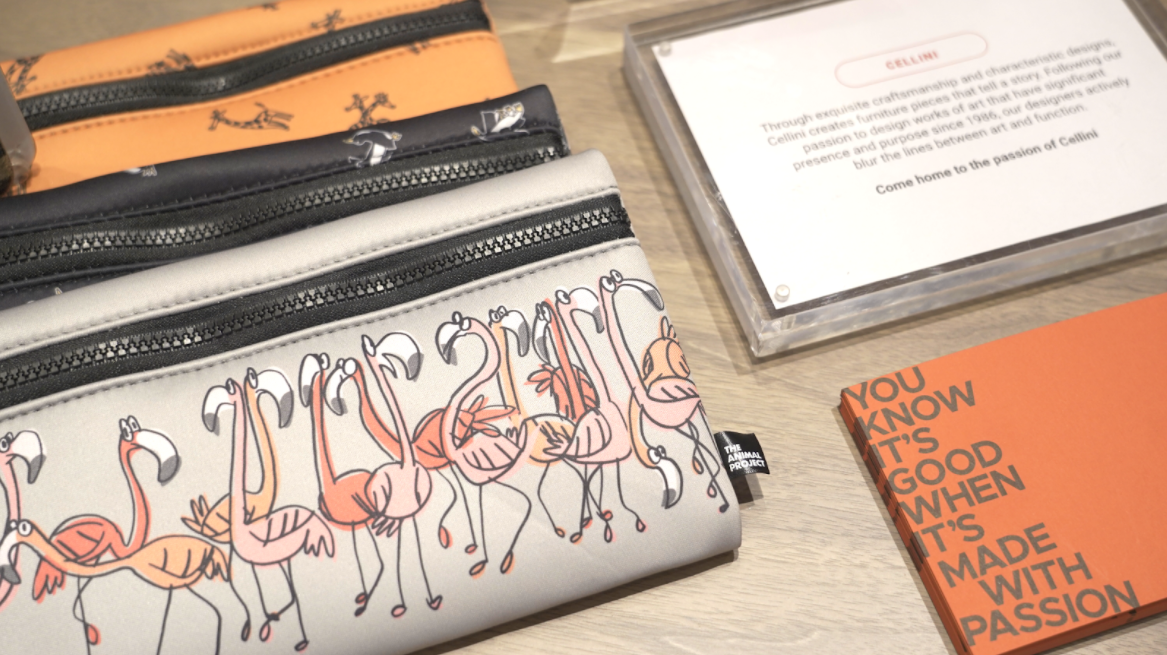 Photo by Abriel Tay
Photo by Abriel Tay
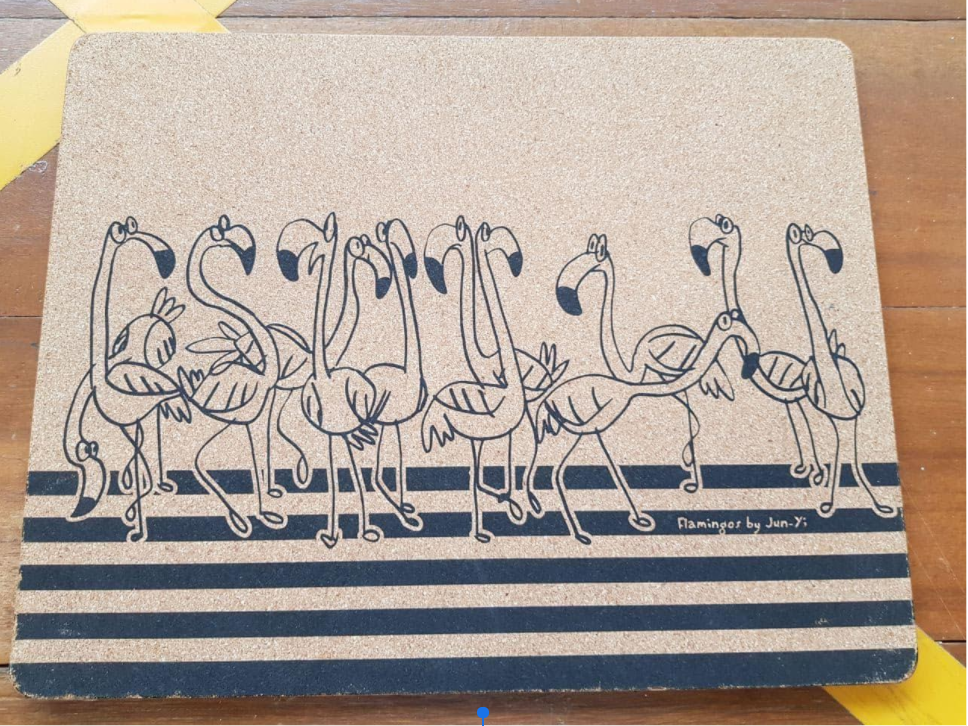 Photo by Matthias Ang
Photo by Matthias Ang
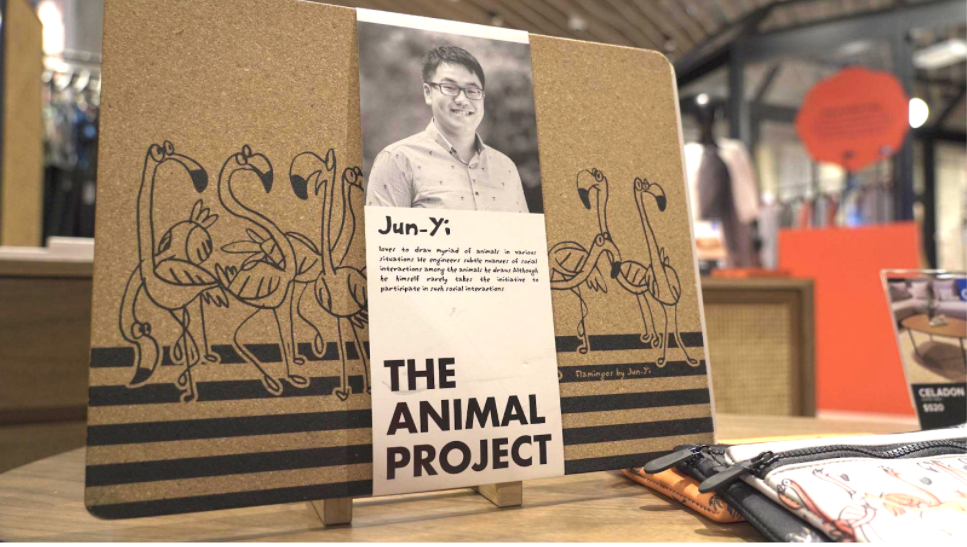 Photo by Abriel Tay
Photo by Abriel Tay
More importantly, these printing processes are done in Singapore, Tay points out, so as to protect the intellectual property of the artists and the artists themselves.
The downside is that the printing is a lot more costly compared to doing it overseas, Tay acknowledges.
Ultimately, The Animal Project is not about just making money
Tay also tells me that there was an initiative that he “dreamed” of joining: Made With Passion.
Made With Passion is a national marketing initiative to promote consumer awareness and appreciation for local lifestyle brands.
Tay says:
“I thought it (the initiative) was quite relevant to many local companies and not just myself, because a lot of our SMEs happened out of passion, whether it’s to change something or improve something. I thought it was a very good initiative.”
Tay elaborates that Made With Passion provides a platform to tell The Animal Project’s brand story as well provide greater visibility for the social enterprise, with its marketing campaigns.
The initiative also provides The Animal Project access to retail channel partnerships, both to enhance its presence in physical stores such as Design Orchard, Fairprice and Food Folks, as well as through eCommerce platforms, such as KrisShop, Shopee and Boutique Fairs Singapore; including participating in joint-marketing campaigns.
Being selected for Made With Passion was therefore a “blessing” as he saw it as encouragement to proceed further with The Animal Project.
That being said, The Animal Project is ultimately not about just making money. “We (The Animal Project) exist for a cause, not just to make money,” he says. “But we have to make sure we make money to sustain the cause.”
In reiterating his point about how The Animal Project’s products should not be a “pity-me product”, but rather products that customers buy out of their intrinsic value.
Given that the artists earn royalties from the sale of their products Tay seeks to ensure that The Animal Project runs well as a business and in a sustainable manner, such that the artists are able to see “the fruits of their labour” and become productive members of society, who also contribute back.
As an example, Tay tells me that Jun-Yi also donates his royalties regularly to The Autism Resource Centre and Hope Centre.
“Any business must be done with passion, more so if there is meaning behind it. It’s not a passion just to make money or move things. A passion that is related to a social cause is even more meaningful and Made With Passion has given me this platform of being able to do so.”
About Made With Passion
A joint initiative by the Singapore Brand Office and the Singapore Tourism Board and supported by Enterprise Singapore, Made with Passion is a national marketing initiative to promote consumer awareness and appreciation for our local lifestyle brands by showcasing the many facets of passion that go into creating the products we enjoy today. It is also a recognition of the hard work and passion that goes behind building an enduring brand, resulting in good products, and hopes to encourage other brand owners and Singaporeans to pursue their own dreams to turn their passions into a reality for a better Singapore.
The Animal Project is one of the 111 local brands that are part of Made With Passion.
Discover our local lifestyle brands and be inspired by their stories on Instagram and Facebook. You can also visit the website here.
This sponsored article by Made with Passion made the author more appreciative of the talents and focus of artists with autism.
Top collage left photo courtesy of Roland Tay, right photo by Matthias Ang
If you like what you read, follow us on Facebook, Instagram, Twitter and Telegram to get the latest updates.
